Khon Kaen University (KKU), represented by the KKU Enterprise Centre, Office of the President, partnered with Mitr Phol Research and Development Co., Ltd., to host the “KKU Enterprise Demo Day x Mitr Phol: Medical Innovation and Food Tech” on Monday, 17 November 2068. The event was held at the Mitr Phol Innovation and Research Centre (Khon Kaen Centre) on the 9th floor of the Khon Kaen Innovation Centre (KIC). This platform showcased KKU’s high-potential research and innovations to entrepreneurs and investors, aiming to concretely translate laboratory knowledge into commercial utilisation.
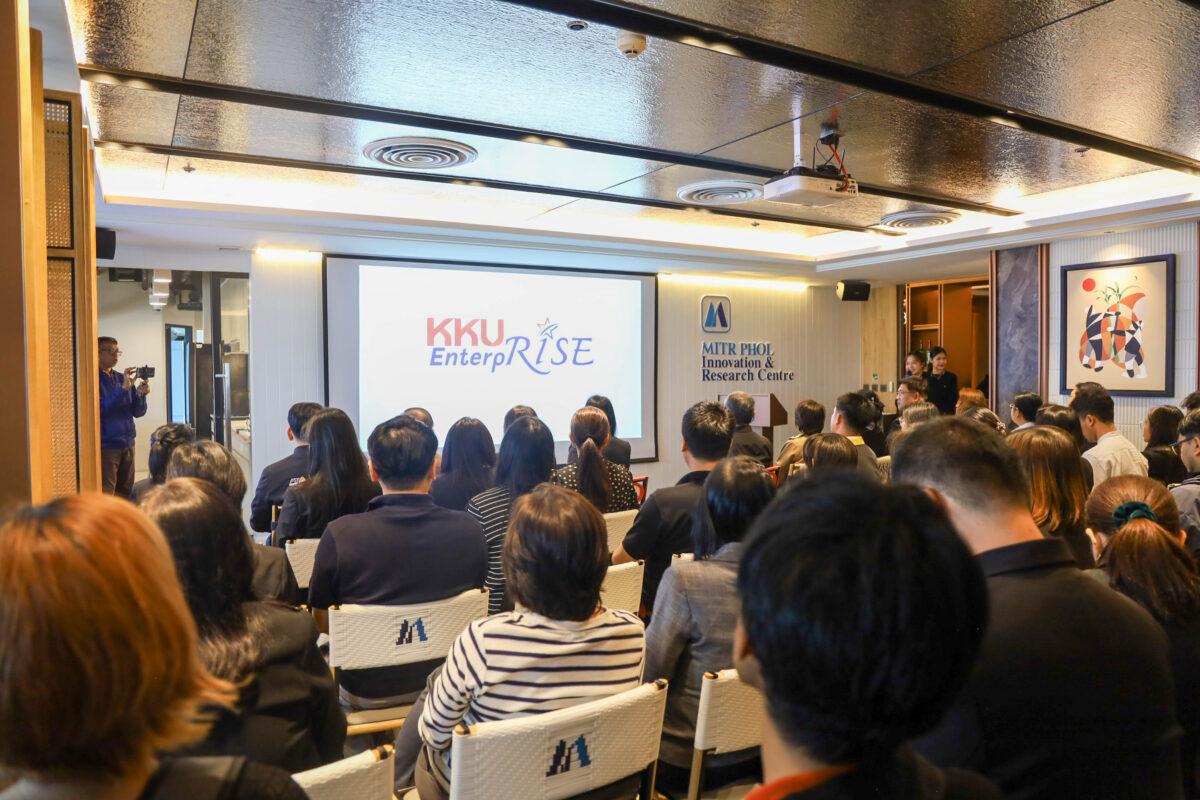
The event was presided over by Assoc. Prof. Pensri Jaroenwanit, Ph.D., Vice President for Student Affairs and Innovation Commercialisation, who delivered the opening address. She highlighted the mission of the KKU Enterprise Centre: to manage research outcomes, technology, and intellectual property, enabling genuine further development through a strong cooperation network and robust innovation ecosystem.
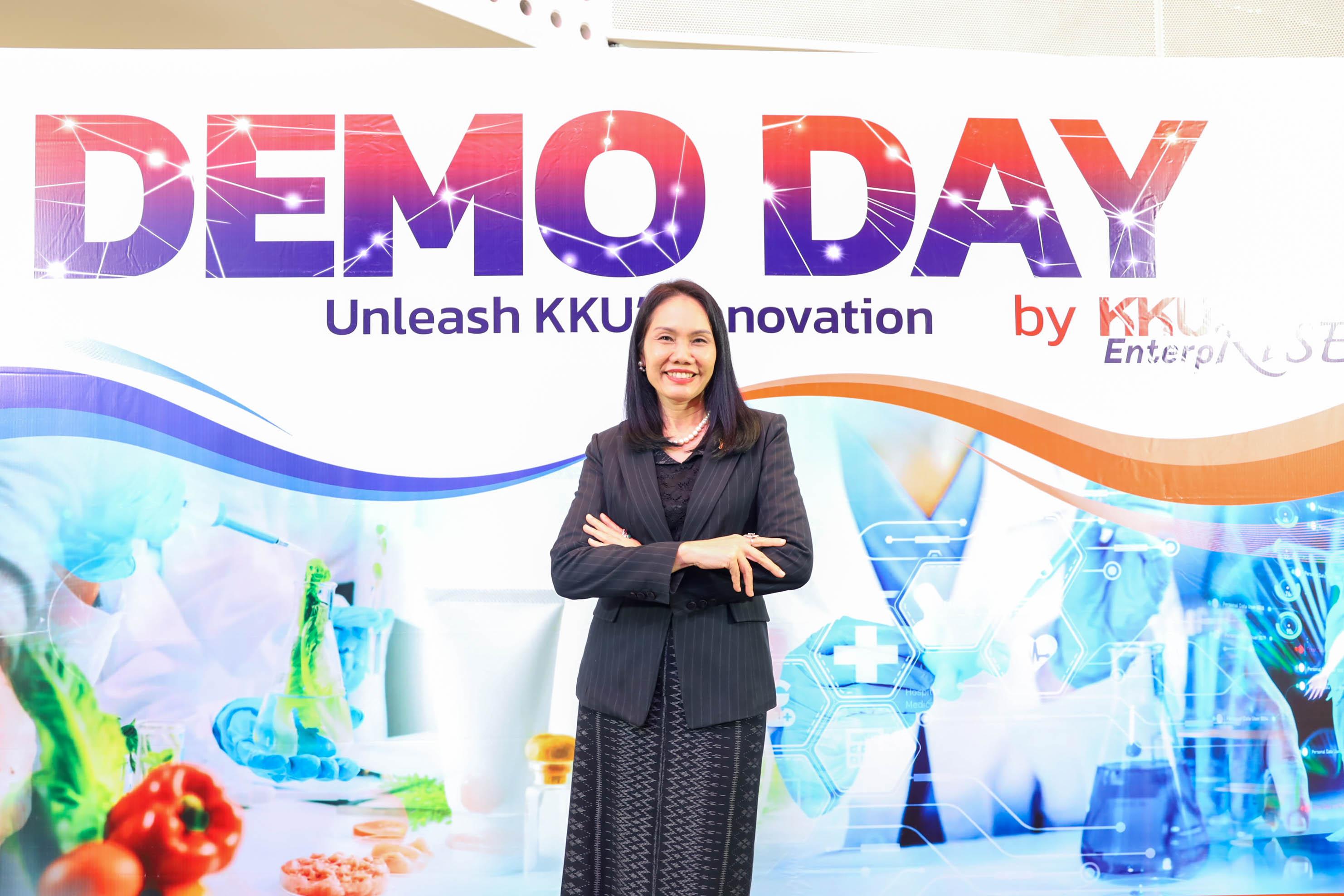
“This is the third iteration of the KKU Enterprise Demo Day, following continuous and positive reception. This programme serves as a crucial mechanism for generating awareness and driving research outcomes towards new collaborations from both public and private sectors. The goal is to ensure that these works can be developed, extended, and genuinely used in the business sector, thereby driving Thailand’s economy and innovation to grow sustainably,” stated Assoc. Prof. Pensri.
Dr. Kamphol Ruttawanish, Head of Mitr Phol Innovation & Research, Mitr Phol Cane and Sugar Research and Development Co., Ltd., delivered welcoming remarks, reaffirming the company’s support for the activity. He emphasised that this event offers Khon Kaen University researchers an opportunity to have their innovations considered for market-ready products that address the future needs of the market and industry.
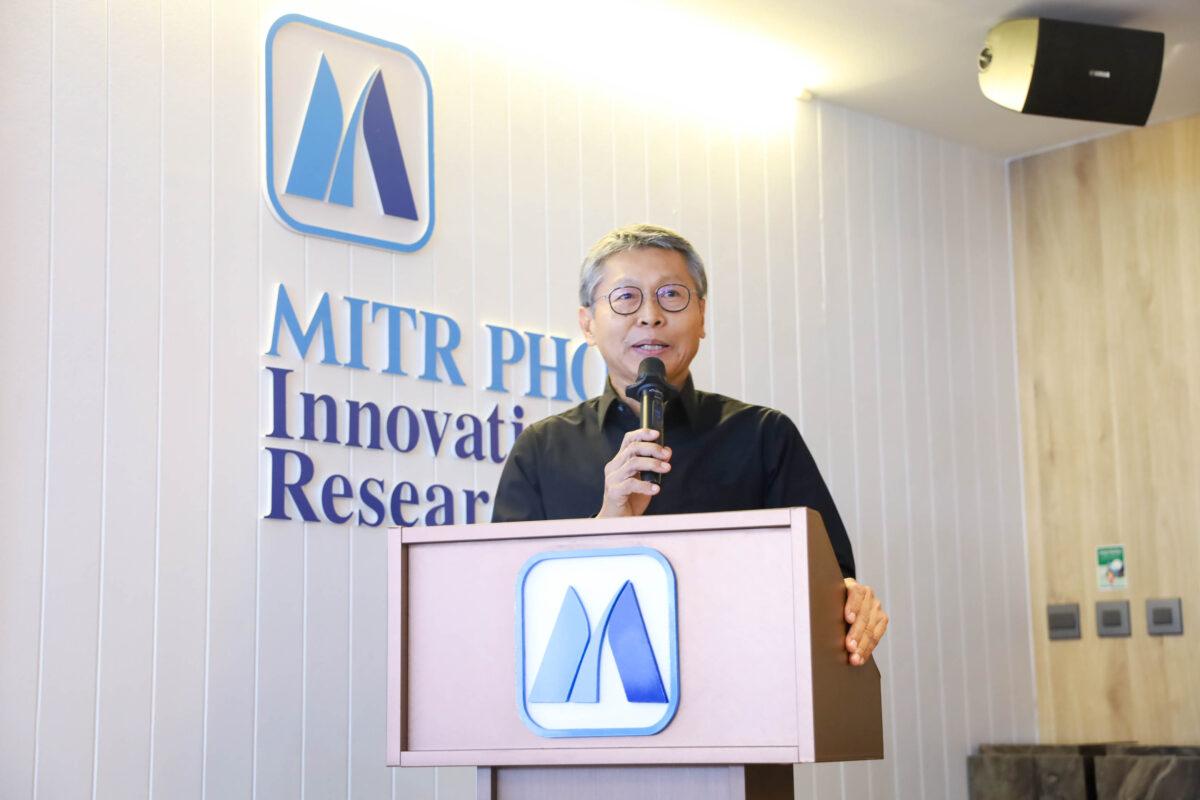
The atmosphere was vibrant, featuring presentations from nine KKU researchers who intensively shared their knowledge and innovations in medical and food technology. The showcased products included: an alpha-thalassemia 1 gene detection kit using the Polymerase Chain Reaction (PCR) technique on amniotic fluid and blood samples; a Gnathostoma spinigerum larva test kit detectable in both serum and via a finger-prick blood sample; corn soup/germinated black sticky rice milk powder formula/healthy porridge for perimenopausal and elderly individuals; ginger extract and mulberry extract capsules, and a ready-to-brew mung bean drink formula.
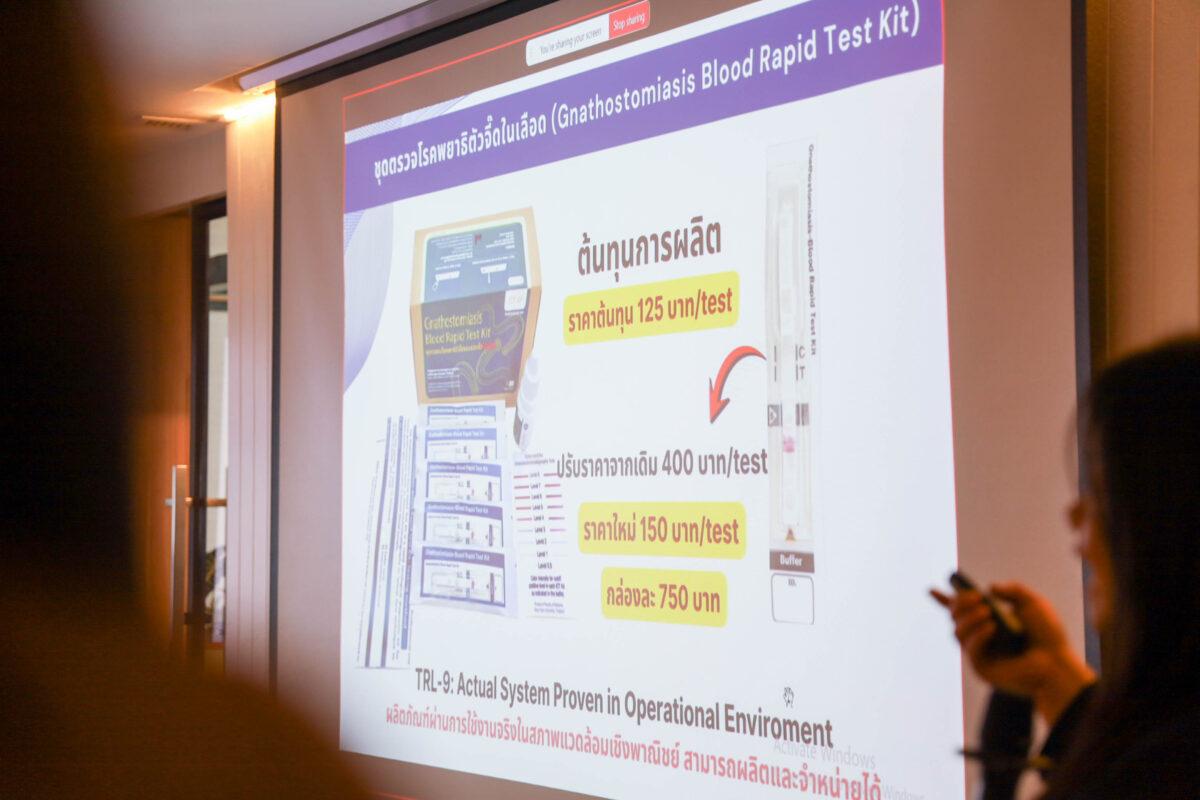
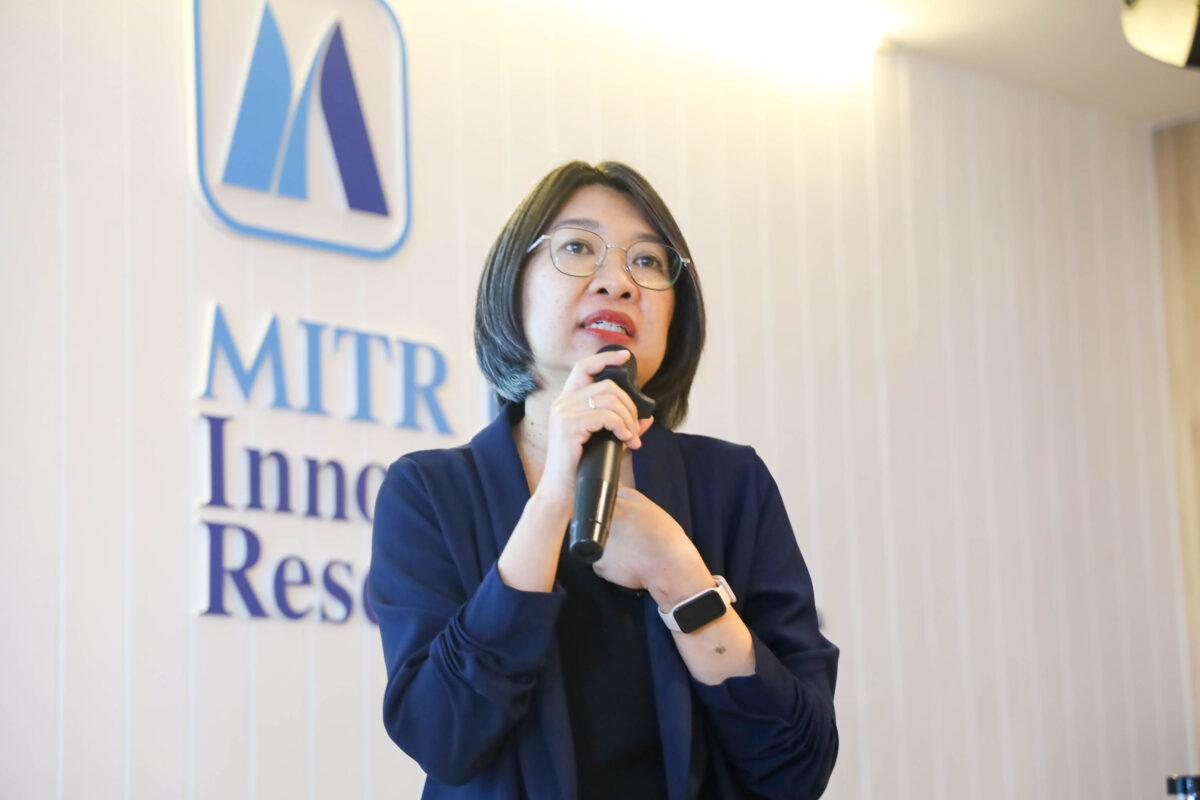
Furthermore, several ready-to-eat products and healthy foods were presented: ready-to-eat rice fortified with hydrogenated protein from rice bran; forbidden rice milk pudding/roselle jelly formula; ready-to-eat thick purée soup for the elderly and people with difficulty swallowing; milk tablets incorporating A2 Beta-Casein milk; ruminant feed formula mixed with fresh cassava and sulphur; and aquafeed formula. These innovations address needs across the medical, nutritional, and modern agricultural sectors, accompanied by close-knit demonstrations and exchange of opinions between researchers and investors.
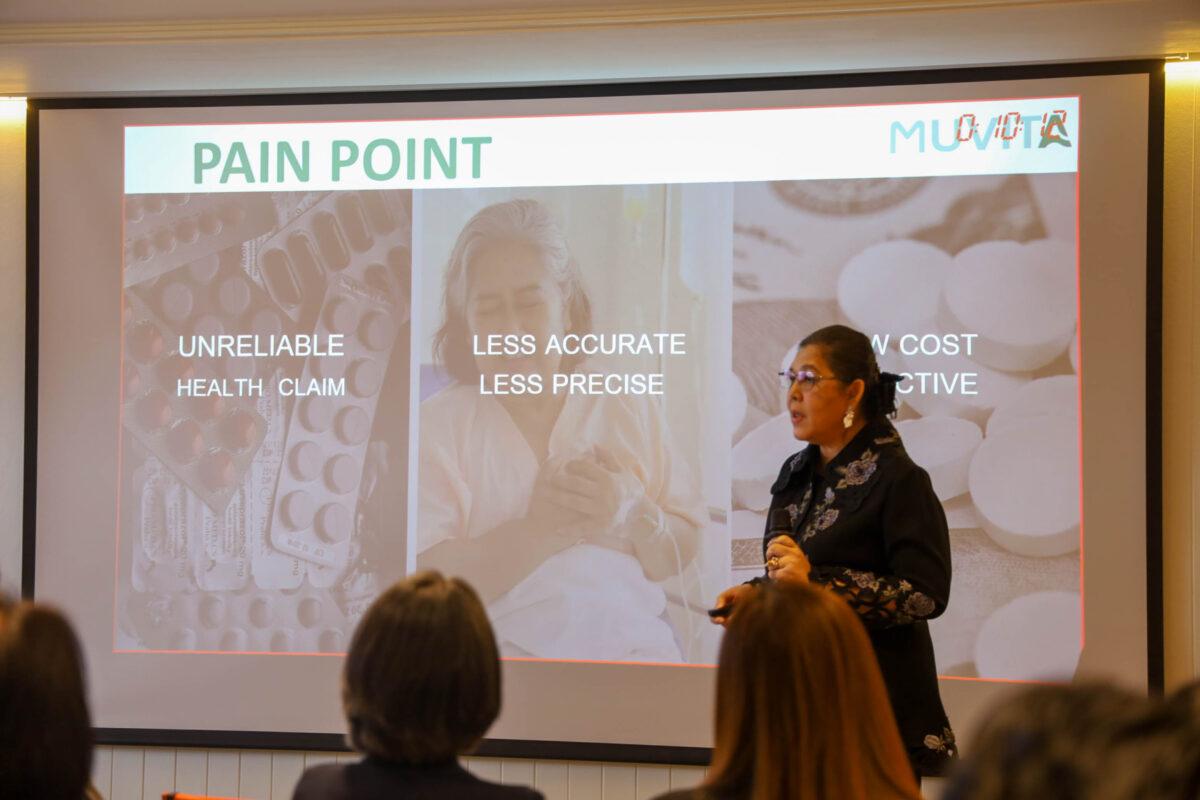
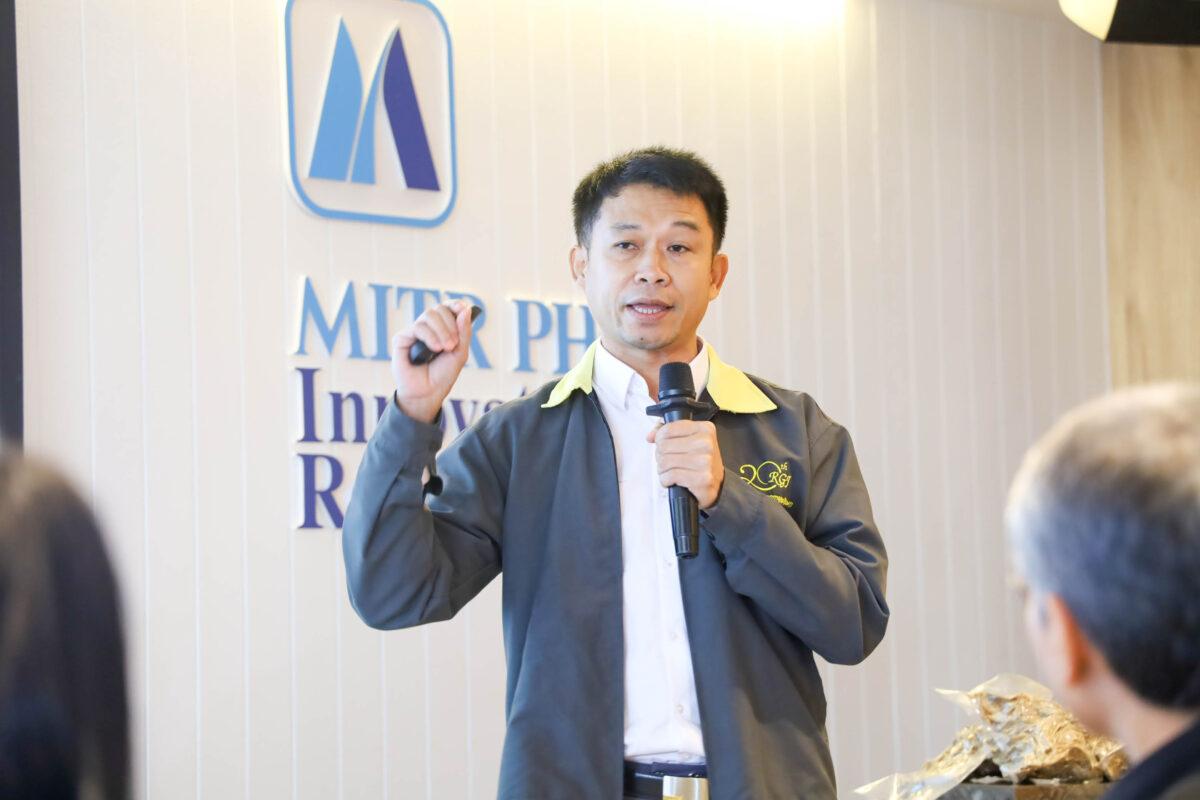
Assoc. Prof. Supawadee Yamsri from the Faculty of Associated Medical Sciences, Khon Kaen University, the lead inventor of the “Alpha-Thalassaemia 1 Gene Detection Kit using Polymerase Chain Reaction Technique on Amniotic Fluid and Blood Samples,” revealed that current thalassemia gene detection relies on DNA extracted from white blood cells, a time-consuming and expensive process. Her team developed a kit that uses only 3 microlitres of blood without additional DNA extraction. The test results demonstrated 100% sensitivity and specificity, accurately identifying whether the tested individual is a carrier. The kit can also be used with traditional DNA-based testing methods.
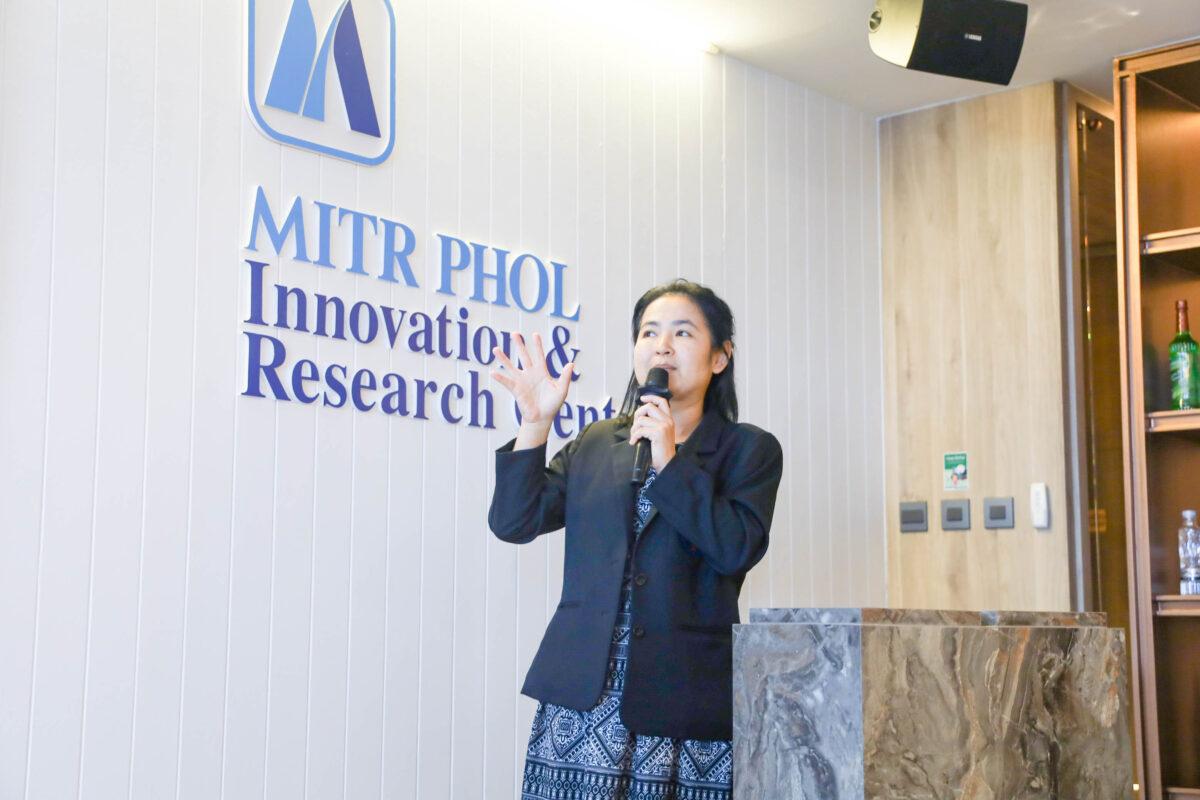
Assoc. Prof. Supawadee further explained that a significant number of Thai people are thalassemia carriers, with prevalence reaching as high as 50% in some areas. Therefore, thalassemia diagnosis is vital, especially since parents who are both carriers risk having a child severely ill or deceased shortly after birth. This diagnostic kit can also test amniotic fluid from pregnant mothers from the fourth month onward, determining if the foetus suffers from severe thalassemia. Furthermore, if district hospitals adopt this kit, the long waiting period for results (currently almost a month due to transportation to provincial or university hospitals) could be reduced to just one week.
“This presentation clearly shows that the KKU Enterprise Demo Day x Mitr Phol platform is a vital opportunity. It enables university research to gain greater visibility among investors and entrepreneurs, leading to discussions, collaborations, and subsequent genuine utilisation. This is a significant step in pushing for this diagnostic kit to be available in hospitals at all levels, ultimately benefiting the public in the future,” she concluded.

The event concluded with a networking session among researchers, investors, and entrepreneurs to discuss pathways for developing research outcomes into commercial ventures. The lively atmosphere reflected Khon Kaen University’s role as a higher education institution committed to sustainably driving an innovation-driven economy. Interested parties may follow or inquire for more information via the KKU Enterprise Facebook page: https://www.facebook.com/share/1BmxuzCWqG/





























